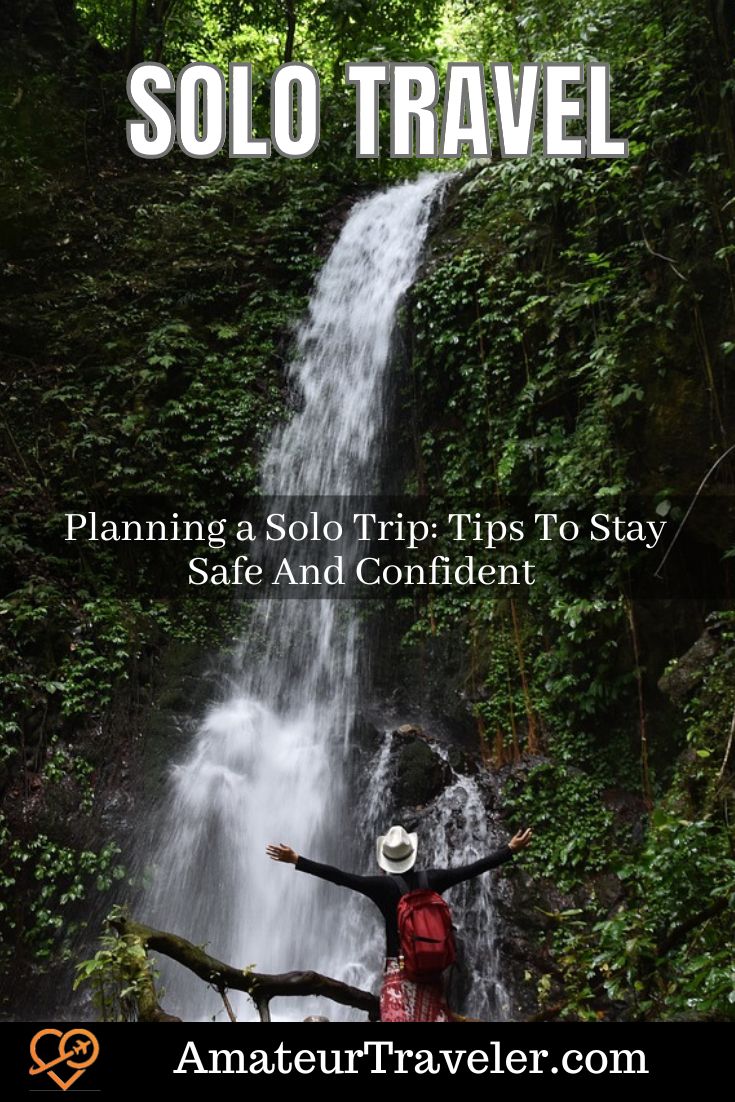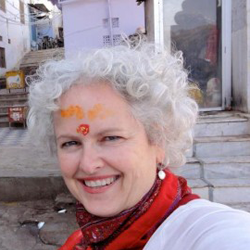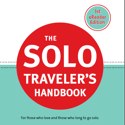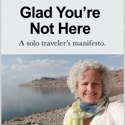Exploring the world at your own pace can be a unique and exciting journey. Solo travel lets you see new places and meet new people while embracing independence and the opportunity to rediscover yourself.
Traveling alone can be daunting for some, especially for first-time solo adventurers. Going to a foreign land can be extra challenging without a companion. However, this fear shouldn’t stop you from having a life-changing and fulfilling experience. With proper preparation, you can go anywhere safely and confidently.
That said, here are some tips to stay safe and confident during your solo travel.
Understanding Solo Travel Essential Attributes
Solo travel is an enriching experience that thrives on setting personal attributes. These positive characteristics add enjoyment and fulfillment on top of Travel Safety. Here are the essential factors that can positively impact your adventure.
- Flexibility: There’s no set schedule or itinerary you must follow when traveling alone. You have the freedom to change your plans based on weather, mood, or new discoveries. This flexibility allows you to truly immerse yourself in the culture and spontaneously enjoy what the destination has to offer.
- Resilience: Challenges and unexpected hiccups are part of every journey. When you’re on your own, you must rely on your resilience to navigate unforeseen circumstances. Did you miss the train? Are you lost in a city? Did you encounter an unfriendly local? Stability will help you stay calm, think clearly, and find solutions.
- Open-Mindedness: Experiencing new cultures, traditions, and perspectives is a given when traveling solo. Keeping an open mind can enrich these experiences, helping you better understand and appreciate the world’s diversity. Being open to new foods, music, customs, and viewpoints can transform your journey into a voyage of self-discovery.
- Responsibility: When traveling alone, you’re responsible for everything – from planning your trip and budgeting to ensuring your safety. This independence can be liberating but also requires careful attention to detail and thoughtful decision-making.
- Adaptability: This is one of the most crucial essentials for solo travelers. Each new location will present different scenarios and experiences. Adapting quickly to changes, be it in the weather, transport systems, or accommodation, is a valuable skill for any solo adventurer.
Understanding these essentials can help you maximize the rewards of your solo journey while also preparing you to face the challenges that may come your way. Embracing these positive attributes also contributes to personal growth.
Planning A Solo Trip
Thorough planning is key to a successful solo adventure. The more prepared you are, the smoother your journey will be. Here are some specific steps and tips to keep in mind when planning your solo trip:
- Research Your Destination: Gather as much information as possible about the location you plan to visit. Understand its culture, customs, local laws, and safety levels. Familiarize yourself with potential hazards or areas to avoid. This knowledge will enhance your trip and help you interact respectfully with locals. Listen to the relevant Amateur Traveler podcast episodes about the destination.
- Book Safe Accommodation: Choose accommodation located in safe and well-reviewed neighborhoods. Look for properties with 24-hour reception, secure entrances, and positive reviews from previous guests. Proximity to public transport or the main attractions can also make your stay more convenient.
- Organize Transportation: Research the local transportation system – buses, trams, trains, or taxis. Knowing your options and how to use them will save you time and stress. If you plan to rent a car or a bike, ensure you understand local traffic laws.
- Create An Itinerary: Plan a flexible itinerary that balances famous landmarks with local hidden gems. Leave room for spontaneous exploration and ensure you’re not missing out on must-see attractions. Having an itinerary can provide a sense of direction and ensure you’re making the most of your time.
- Consider Travel Insurance: Travel insurance is a safety net that can cover anything from lost luggage to unexpected medical expenses. It provides peace of mind knowing that you’re financially protected during your journey.
- Learn Basic Local Phrases: If you’re traveling to a country where English is not commonly spoken, learning a few phrases in the local language can be lifesaving. Being able to greet locals, thank them, and ask for directions in their language can enhance your travel experience and also help you navigate unfamiliar territories more confidently.
These steps won’t only help ensure a safer and more enjoyable journey but also allow you to focus on the best part of solo travel – the freedom to explore, discover, and enjoy the world at your own pace.
Packing Essentials For Safety And Convenience
A well-packed bag can significantly enhance your solo travel experience. It’s about balancing what’s necessary and convenient without overpacking. Here are some essential items that you should consider packing for your trip:
- Necessary Documents: Always carry your passport, driver’s license, and any other necessary ID. Ensure you also have a digital and physical copy of your travel insurance documents. These are your lifelines when you’re in a foreign land.
- Medical Supplies: Carry a basic first-aid kit with band-aids, antiseptic wipes, and ointments. If you’re on any medication, bring enough to last your entire trip, plus some extra in case of delays.
- Tech Devices: Your smartphone is likely your most important tool as a camera, map, translator, and communication device. Consider a local SIM card or eSim card for affordable data access and keep a power bank handy for emergency charging.
- Personal Safety Tools: Safety should always be a priority. Tools like a whistle, door stopper, or flashlight can be helpful depending on your destination. Some travelers also carry a personal alarm for added security.
- Comfort Items: While not strictly necessary, comfort items can make your trip more enjoyable. This could be anything from your favorite book to noise-canceling headphones for long flights.
- Money and Credit Cards: It’s a good idea to have some local currency on hand for places that don’t accept cards. Also, bring at least two credit or debit cards stored separately so you have a backup if one gets lost or stolen.
- Versatile Clothing: Pack clothing pieces that you can mix and match. It’s also best to consider layers to adapt to changing weather conditions. Also, pack at least one set of slightly more formal clothes for fancier events or establishments. A pair of reliable and comfy walking shoes are also non-negotiable.
- Water Purification Tool: Depending on your destination, tap water might be unsafe to drink. A water bottle with a built-in filter, purification tablets, or a portable water purifier can be beneficial. It’s not just a health measure but an eco-friendly practice too.
Efficient packing can make your trip more comfortable and convenient. It’s always better to be over-prepared when traveling alone, so spend time thinking about what you’ll need. A well-packed bag can become a reliable companion in your solo adventure.
Additional Safety Tips
Safety should be a top priority for any solo traveler. A secure journey allows for enjoyable exploration and peace of mind. Here are some tips to help maintain safety during your trip:
- Stay Connected: Always keep someone informed about your whereabouts and plans. Regular updates with friends or family members can be a lifeline in an emergency.
- Food and Drink Safety: Be cautious about where and what you eat and drink. Try to eat at places that are busy and appear clean. Avoid undercooked food, and always ensure your drinking water is safe.
- Safeguard Your Belongings: Keep your belongings close and secure at all times. Consider anti-theft bags for your essentials and use hotel safes for valuable items. Never leave your belongings unattended in public places.
- Stay Alert to Scams: Familiarize yourself with common scams at your destination. Whether it’s inflated taxi fares, bogus tour guides, or distraction thefts, staying informed will help you avoid falling victim to these scams.
- Trust Your Instincts: Your gut feeling is a powerful tool. If something or someone makes you feel uncomfortable, trust your instincts. It’s better to err on the side of caution when you’re traveling alone.
- Avoid Oversharing Information: While making new friends is great, be cautious about the amount of personal information you share with strangers. Avoid divulging details about where you’re staying or your travel plans.
- Stay Sober: While you might be tempted to let loose on your vacation, maintaining control of your faculties is important for your safety. Therefore, it’s best to limit your alcohol consumption and avoid accepting drinks from strangers.
By incorporating these safety measures into your trip, you’ll help ensure that your solo adventure is fun and worry-free.
Building Confidence While Solo Traveling
Traveling alone can be a great confidence booster. It provides opportunities to tackle challenges head-on and make decisions independently. Here are some tips to help you build confidence during your solo travels:
- Start Small: If you’re new to solo travel, consider starting with a short trip closer to home. As you gain confidence and learn how to handle different situations, you can gradually venture out to more distant destinations.
- Do Thorough Research: Knowledge is power and confidence. Thoroughly research your destination’s culture, local customs, and safety aspects. The more you know, the more prepared and confident you’ll feel.
- Maintain A Positive Mindset: Remember, minor mishaps or unplanned situations are part of the journey. Embrace these experiences and learn from them. Each hurdle overcome will add to your confidence.
- Stay Active and Healthy: Physical activity boosts mood and confidence. Incorporate exercises like hiking, swimming, or yoga into your travel plans. Also, ensure you eat well and get enough sleep to stay physically fit and mentally sharp.
- Practice Assertiveness: As a solo traveler, you’ll sometimes need to be assertive. Whether it’s declining an unwelcome invitation or haggling over a price, don’t be afraid to express yourself confidently.
- Make Connections: Interacting with locals and other travelers can build confidence. Attend local events, join group tours, or strike up conversations in cafes. Remember, being solo doesn’t have to mean being solitary.
- Embrace the Journey: Embrace the freedom and independence that comes with solo travel. Every experience, whether good or bad, is an opportunity to grow and boost your confidence.
With these tips, you’ll not only increase your confidence in solo travel but also in other aspects of life. After all, the world is a great teacher, and solo travel offers some of its most enriching lessons.
- Buy Travel Insurance
- Get a Car Rental
- Search for Great Tours HERE
- Book Your Accommodation HERE

Prioritizing Mental Health And Self-Care While Traveling Alone
While solo travel can be exciting and rewarding, it can also pose challenges to your overall well-being. Prioritizing self-care and mental health cultivates an enjoyable and sustainable travel experience. Here are some tips for taking care of your well-being on the road:
- Establish A Routine: Having a loose routine can provide a sense of familiarity and stability. This could be as simple as starting your day with a stretch, having a coffee, or writing in a journal. It can ground you when everything around you is new.
- Eat Healthly: It’s easy to fall into a pattern of eating out or choosing quickly, which are unhealthy options while traveling. Maintain a balanced and nutrient-dense diet with plenty of fruits and vegetables. Your body and mind will thank you for it.
- Communicate with Your Loved Ones: Loneliness can sometimes creep in when traveling alone, so connecting with family and friends back home is essential. Also, take the opportunity to make new connections with locals or other travelers.
- Take Time for Reflection: Solo travel offers a unique opportunity for self-reflection. Take time to relax, meditate, or write a journal. These activities can provide mental clarity and peace.
- Get Plenty of Rest: Changing time zones, long travel days, and new environments can disrupt sleep. Aim for at least seven hours of sleep a night to ensure you’re well-rested and ready for each day’s adventures.
- Listen to Your Body: If you feel run down, rest. Listen to your body’s signals. It’s better to take it slow and enjoy the journey than to push yourself and risk burnout or illness.
- Seek Professional Help If Needed: If you’re feeling constantly anxious, depressed, or overwhelmed, don’t hesitate to seek professional help. Many therapists offer telehealth services, making it possible to talk to a professional from anywhere in the world.
By prioritizing mental health and self-care, you’ll be in the best position to enjoy and appreciate the unique experiences that solo travel brings.
Conclusion
Solo travel is a rewarding experience, made significantly better by maintaining safety and building confidence. It’s an adventure filled with learning opportunities and unforgettable memories. Every step you take alone isn’t just towards a new destination but a step towards personal growth and self-discovery that’s worth embarking on.
Image by Rihab Gwayed from Pixabay
Leave a Reply
Tags: article, solo travel, travel 101







 Solo (International) Travel as a Woman – Episode 355
Solo (International) Travel as a Woman – Episode 355 Book Review: “Solo Traveler’s Handbook” by Janice Waugh
Book Review: “Solo Traveler’s Handbook” by Janice Waugh Book Review: Glad You’re Not Here: A Solo Traveler’s Manifesto by Janice Leith Waugh
Book Review: Glad You’re Not Here: A Solo Traveler’s Manifesto by Janice Leith Waugh First Time Cruise Tips – Planning a Cruise
First Time Cruise Tips – Planning a Cruise
